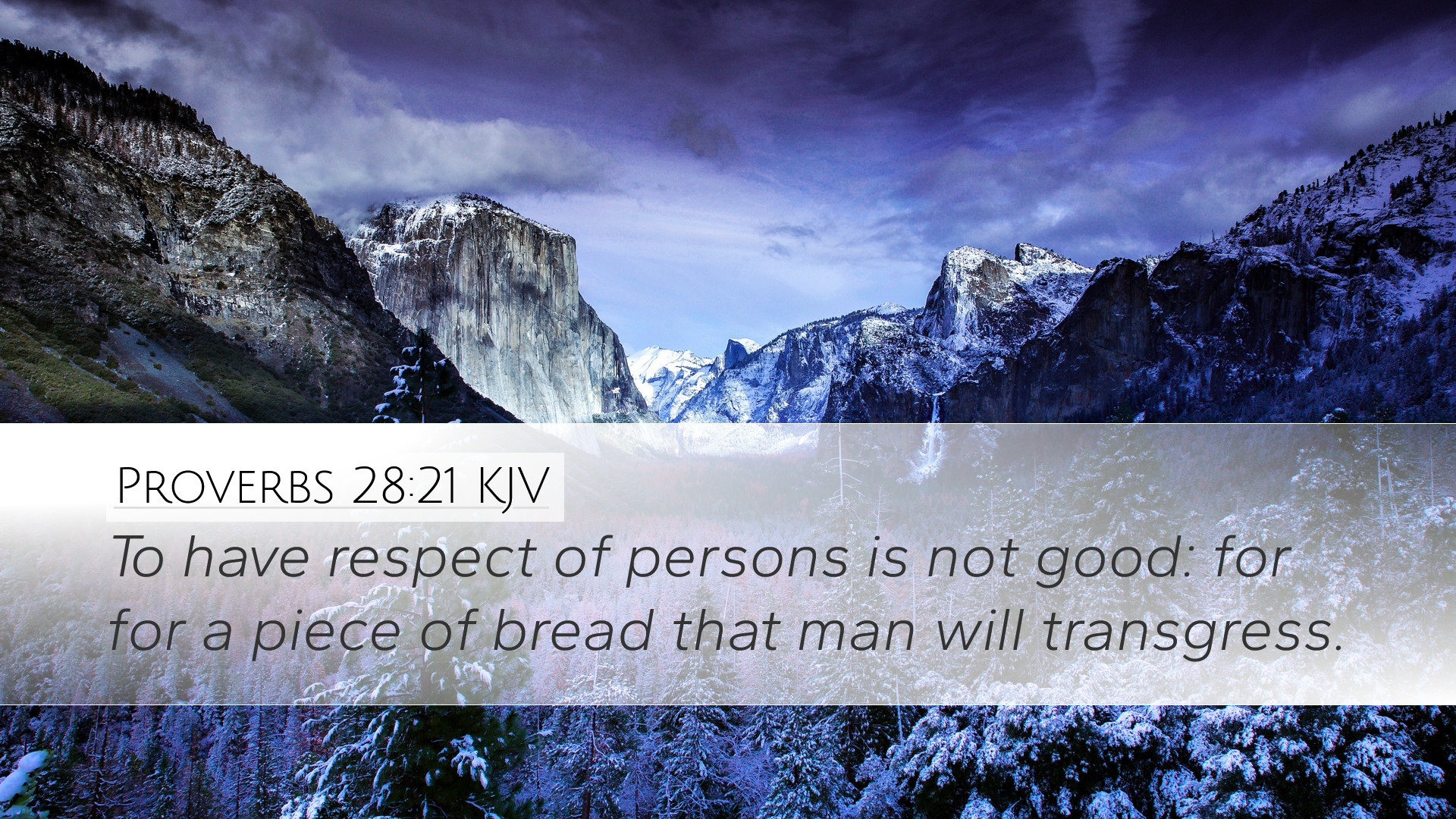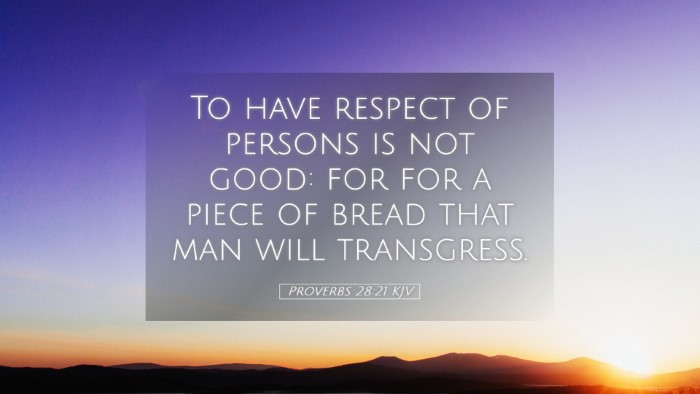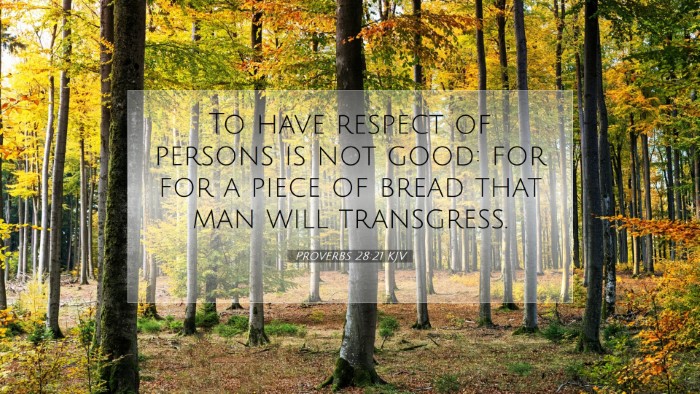Commentary on Proverbs 28:21
Proverbs 28:21 states: "To have respect of persons is not good: for for a piece of bread that man will transgress." This verse speaks to the moral imperative of impartiality and the dangers of favoritism. It provides a profound insight into human behavior and social dynamics, warning against the inclination to show bias in judgments, especially for the sake of material gain.
Contextual Background
This proverb is situated within a collection of practical wisdom intended to guide individuals in their personal conduct and societal interactions. The theme of justice and integrity appears throughout the book of Proverbs, highlighting the character of God and the ethical standards expected from His followers.
Interpretations from Public Domain Commentaries
-
Matthew Henry:
Henry emphasizes that showing partiality in judgment undermines justice. He explains that the phrase "respect of persons" refers to favoritism or bias that compromises righteousness. He elaborates that even for trivial rewards, such as a piece of bread, a person may betray their integrity. This highlights the moral decay resulting from material temptations and stresses the necessity of maintaining impartiality regardless of external pressures.
-
Albert Barnes:
Barnes interprets this verse as a commentary on the corrupting influence of wealth and status. He posits that those who favor certain individuals over others often do so out of self-interest, leading to unjust actions. The phrase "for a piece of bread" suggests that even the smallest incentives can lead individuals to act against their better judgment and ethical standards. Barnes brings attention to the importance of integrity and warns against the ease with which one can become ensnared in moral compromise.
-
Adam Clarke:
Clarke’s commentary draws attention to the social implications of favoritism. He notes that yielding to the pressure of appeasing influential figures can lead to a distortion of justice. He further expounds that such behavior is detrimental to society, as it fosters an environment where corruption can flourish. Clarke suggests that the ultimate consequence of favoritism not only affects individual integrity but also the broader social fabric, leading to increased injustice and inequality.
Theological Insights
This passage serves as a vital reminder of God's impartial nature. The Bible frequently emphasizes that God does not show favoritism (see Acts 10:34-35). This trait is essential for leaders, as they are called to emulate divine justice and impartiality. Favoritism can lead to a myriad of issues, including oppression and injustice, which are starkly opposed to the teachings of Christ.
Practical Applications
For pastors and church leaders, this verse serves as a guide to promote fairness and equity within their communities. Here are practical applications derived from this verse:
- Promote Equity: Ensure that all community members are treated fairly, without bias towards wealth, status, or influence.
- Moral Integrity: Uphold Christian ethical standards in decision-making, teaching congregants to prioritize integrity over material gain.
- Address Favoritism: Be vigilant against favoritism both in personal conduct and in the church context, encouraging a culture of fairness.
- Educate on Justice: Teach the implications of this verse in Bible studies to foster discussions on impartiality and its significance in Christian life.
Conclusion
Proverbs 28:21 presents a potent reminder of the dangers of favoritism. Through insights from trusted biblical commentators, individuals of faith are encouraged to examine their own biases and strive for equitable treatment of others. By reflecting the impartiality of God in our actions and judgments, we contribute to the building of a just and righteous society.


